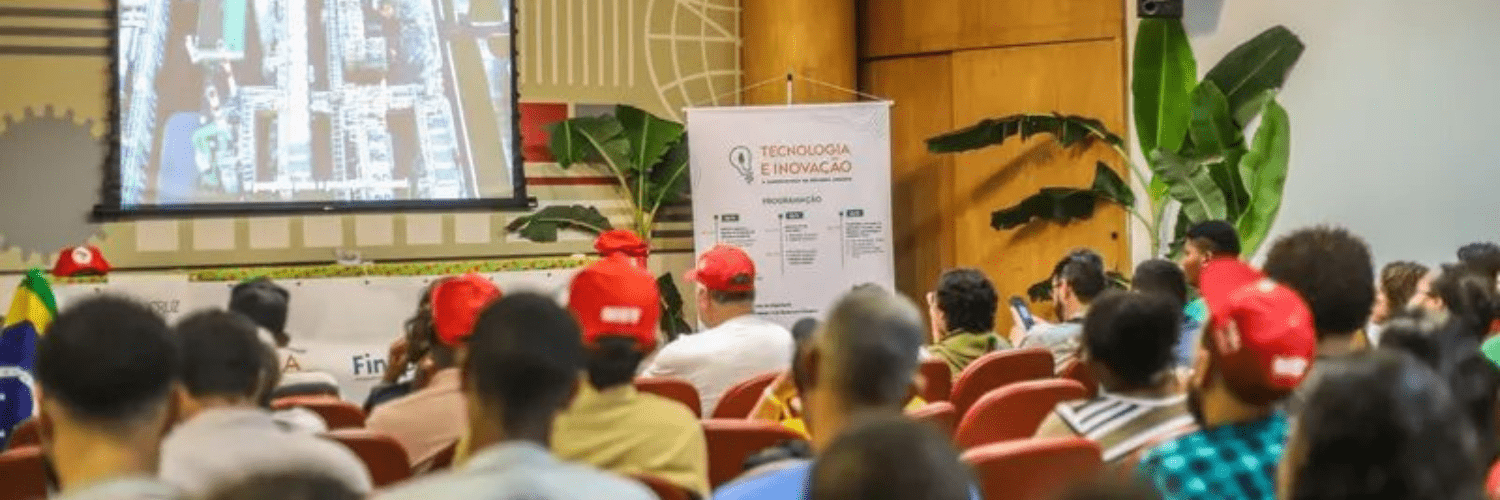Brazil: Popular agrarian reform and the massification of agroecology are central proposals of the MST to the G20

First published by Brasil de Fato November 13, 2024
For two days, the Landless Rural Workers Movement (MST) met in the central region of Rio de Janeiro (RJ) to discuss the proposals that will be taken to the heads of state who will participate in the G20 Summit, which takes place in the capital of Rio de Janeiro between 18 and 19 November. Within the synthesis of proposals that the movement is preparing, the materialisation of popular agrarian reform and the massification of agroecology stand out as central points to guarantee healthy food for the Brazilian population and to combat the climate crisis.
“The massification of agroecology is linked to increased cooperation within our areas, to the debate on the organisation of food and agroecological production chains, so that each region of Brazil, each state, can bring together its specific problems, without renouncing diversity. Understanding that we need to achieve technologies to reduce hardship and increase productivity, in this case, mechanisation, inputs, renewable energies, which contribute in this sense. In addition to the importance of planting trees and producing food”, Bruno Diogo, from the national leadership of the MST, told Brasil de Fato.
The movement’s proposals were systematised during the seminar Technology and innovation: agroecology in agrarian reform. The seminar began last Tuesday (12) and ended on Thursday (14), sponsored by Finep.
“In these three days we are talking about technology and agrarian reform, the climate crisis and the impacts on agriculture and new technologies in the countryside. The idea is that we can bring these discussions together in synthesis, to be transferred to the G20 spaces, so that we can add reflections from other organisations and influence world leaders towards the necessary changes in relation to agroecology,” said Diogo.
On Tuesday, the issues of economic development and the climate crisis and the challenge of producing healthy food were discussed. On Wednesday (13), the participants of the meeting were divided into groups to systematise the movement’s proposals. They discussed issues related to food production, agroecology, reforestation, as well as education, health and culture.
“The idea is that each group has a report, a systematisation, and that we can, after the results of these discussions, put everything together in a single material, which will also be sent to the leaders who will be here discussing the G20,” explains Diogo. explains Diogo.
The final document with the notes and reflections of the MST in relation to the challenges posed for popular agrarian reform were presented on Thursday, on the first day of the Social G20. “The G20 has the Social Summit that fulfilled the role of bringing together our reflections, from this field of agrarian reform, with other publics that are participating, other social organisations, to then be transferred to the leaders of the nations,” he says.
Maíra Marinho (PT-RJ), an elected councillor known as Maíra do MST, stressed the importance of the event for the accumulation of forces of the popular movement in order to influence the meeting of heads of state.
“This moment of the social G20 presented us with the task of bringing together our activists from all over Brazil, proposing this space for reflection, for training, to accumulate strength and face the challenges that lie ahead. I am sure that, from this accumulation, we will be able to think collectively, within the framework of the MST organisation, the proposal to combat hunger, valuing the environment and all that we produce in our territories”.
Popular agrarian reform and agroecology
In 2024 it will be 10 years since the conception of popular agrarian reform as the central banner of the MST, defined at the movement’s VI National Congress, held in 2014. Débora Nunes, from the national coordination of the MST, points out that, during this period, the movement sought to build “unity to understand what a popular agrarian reform is, building experiences that could materialise our proposal”.
“These 10 years have given us the understanding that popular agrarian reform, the struggle for land, remains an essential pillar. Popular land reform is also a transitional proposal and requires a popular government to carry it out, this is still on the agenda”.
Débora affirms that the MST’s understanding of this process points to the construction of a popular agrarian reform, and that the current moment requires the massification of agroecology as a way to confront the advance of capital in this sector, represented by agribusiness.
“Reversing what capital has done to agriculture requires confronting this capital with the massification of agroecology. For this massification we need to achieve material and objective conditions such as access to credit, bio-inputs and irrigation. We need to return to issues from other phases of this construction of SLM agroecology. The construction of agroecology is not something that emerges from a step forward. Confronting the hegemonic model and building an agroecology has been a constant task from the beginning.
By Leandro Melito and Leonardo Fernández
This post is also available in Español.
